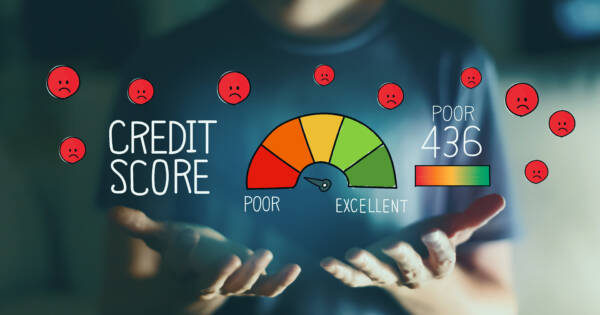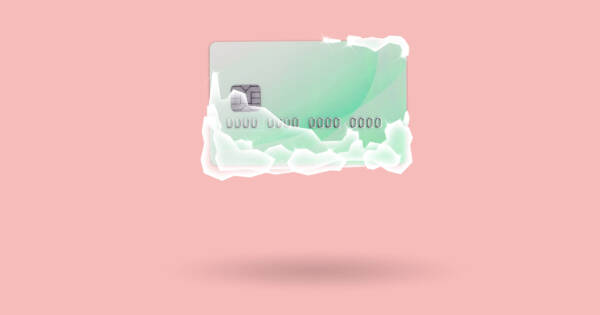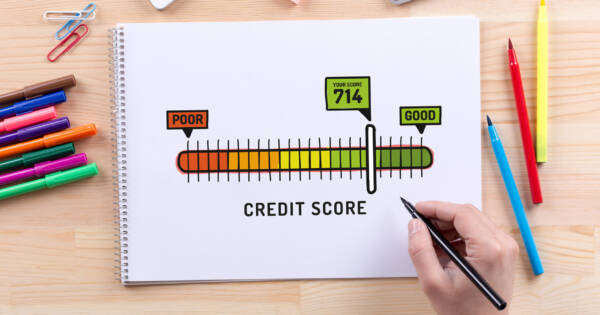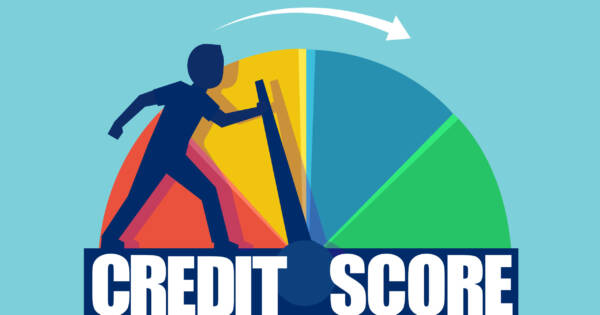Your credit score plays a major role in how lenders, insurers, and even service providers assess your financial reliability. A stronger score can make it easier to qualify for financing and secure more favorable terms, while a weaker one can lead to added costs or limited options. Fortunately, building and maintaining solid credit is achievable with consistent habits and informed decisions. If you want to strengthen your financial profile, here are practical tips to help you work toward better credit.
Use Credit Responsibly
Some people are understandably very wary of the idea of using credit. After all, unchecked credit use can often lead to crippling debt. The good news, though, is that you don’t have to end up that way. Using credit responsibly doesn’t necessarily mean financial bondage. You can still get a credit card, use it sparingly, and then pay off the balance every month. That’s one surefire way to use credit without getting into debt.
You can also borrow a small amount in a personal loan. Then make sure you pay it back over the next few months or years. Don’t miss any payments. You’ll pay a little bit in interest, but once the loan is all square, your credit score will improve. Other potential lenders will see that you paid off the loan without issue. Remember, you have to actually use credit in order to build a credit history. Just make sure that your credit history is an attractive one.
Make All Your Payments on Time
One of the best things you can do for your credit is to make all of your payments on time. Your payment history is one of the biggest factors that influences your credit score. It’s not just making your monthly credit card payments, either. Paying your car loan, mortgage, and even your utility bills in full and on time will also keep your credit score up. At the very least, they won’t show up on your credit report as delinquent accounts.
This is true even if you pay just the minimum owed. If you’re absolutely stuck, you should still pay the required minimum on your credit card or line of credit. It’s obviously preferable to pay the entire balance off. However, paying the minimum payment (usually displayed on the monthly statement somewhere) is enough to keep the account is good standing. Don’t neglect this small task when times are tough, or your credit score will suffer.
Get Your Budget in Order
Creating and following a spending plan can help you stay out of financial trouble. Make it a point to have a good budget that you can stick to. That way, you’ll be able to control your finances — rather than have them control you. Your budget can help keep your finances in order to the point that you won’t have to carry a balance on your debt in order to succeed each month.
Having a reasonable budget is a major key to financial success. We have multiple articles about different ways to budget. Or you can use the help of an app or computer software to assist you, if you prefer. The important thing is find something that works for you. Sticking to a budget can keep your debt low and all your bills paid. Your credit score will benefit.
Keep Your Credit Utilization Below 30%
One of the factors that makes up your credit score is known as your credit utilization rate. In order to have the best possible credit score, you want each recurring credit to be no more than 30% of its credit limit. This means that you don’t want to have a balance of more than $1,000 if you have a credit card that has a credit limit of $3,000.
One way to improve this metric is to spend less, obviously. Another way is to actually have more available credit that you simply don’t use. If you can qualify for a new credit card that doesn’t have an annual fee, the available credit is brings can actually help this score. While the common advice is to keep your credit utilization under 30%, some experts have also suggested to aim for 0%. However, this can also be bad, as lenders might flag your accounts as inactive. They could even close your credit accounts for lack of use. The best advice is to use your credit a little bit every month, and pay it off immediately.
Consider Consolidating Your Loans
One other way to reduce your credit utilization rate is to consolidate your credit card debt into longer term loan. It needs to make sense for your own financial circumstances, of course. However, it will immediately reduce your credit utilization rate. Just make sure you treat this new loan as a financial priority. Oh, and don’t immediately rack up more credit card debt once you’ve transferred the balance over.
In most cases, you’ll save some money by consolidating your credit card with a personal loan. They typically have much lower interest rates than credit card (which are routinely in the 15-to-25% range). The key to this credit score improving tactic is to make all your loan payments in full and on time. And consider putting your credit card away entirely for a while.
Don’t Apply for Too Many Loans at the Same Time
While it’s always a good idea to shop around for the best terms whenever you need to borrow money, you should be careful. Making too many loan requests in a short period of time will cause a lot of “hard pulls” on your credit report. Having too many of these will negatively impact your credit score, as it can make lenders think you’re desperate for money. Yes, even if you only decide to sign for a single loan, those other applications can stay on your credit report too.
The good news is that the credit industry actually understands that you may shop around. That means frequent hard pulls on your credit within a short time period (usually 15 days, sometimes 30 days) will count as a single inquiry. So if you are going to shop around for good terms on a credit card, car loan, mortgage, or personal loan, you should do you best to not spread them out over a few months.
Use a Credit Monitoring Service
Having a monitoring service won’t directly improve your score. However, getting alerts to any changes on your credit report will help you find ways to improve your score. In fact, most credit monitoring services will send you helpful suggestions on how to get a higher score. Even better, there are multiple options available. We personally like CreditKarma, but you can choose your own favorite.
While using credit monitoring won’t directly increase your score, it can save your score from dropping. That’s because using these tools will help you stay on top of your credit report every month. That means any forgotten payment or fraud attempt can be caught early, before it does major damage.
Keep the Older Accounts Open
Credit agencies want to see that you’ve had a long history of paying on time. That’s why older accounts are more valuable than ones you’ve just opened. For credit cards especially, this means that you should just keep older ones open, even if you don’t use them anymore. Unless they have a hefty annual fee, just throw the card in your sock drawer and forget about it. (And if they do have a fee, call the provider and see if you can switch it to another offering — without losing the account history).
I have a couple credit cards that are still active, even though I haven’t used them for years. I just let them exist, with zero balance, for sake of keeping my credit history long and my credit score high. Once in a while, they send me a letter threatening to close my account if I don’t use the card. So I make a small purchase, pay it off immediately, and then continue to ignore the card’s existence again.
You don’t need to have a gigantic amount of credit card accounts active. However, you may eventually want to move on from that entry-level card you got back in your early 20s. As your get older, you may want a card with better rewards or a higher limit. Just don’t cancel that old card completely, once you move on to greener credit card pastures.
Have Different Types of Loans on Your Credit File
I used to only have a couple credit card accounts on my credit report. That’s because I was lucky enough to pay cash for my car and didn’t own a home yet. However, when I bought my next car (at 0% financing!), my credit score jumped considerably. You see, your credit score is partially based on having a variety of credit types.
Credit cards (or lines of credit) are know as recurring or revolving debts. It also helps to have car loans, mortgages, personal loans, or business loans on your credit report too — assuming they are all in good standing. They are known as installment debts and will also boost your score. If you are just starting out and want to supercharge your progress to improve your score, then try to have a variety of loans that you pay on time.
Opt-In to Credit Boosting Services
UltraFICO and Experian Boost both aim to increase your credit score by using your bank account information to prove that you consistently have a positive balance on your bank account to pay your bills. If you’re looking for a quick boost to your credit score, these types of services can help a bit.
Experian Boost actually takes this concept a bit further. It looks at your others bills, so credit agencies know that you pay your bills on time. This includes utility bills, internet service provider bills, and even your Netflix payments. These services don’t cost anything, so it’s worth a shot if you are looking to build a credit history or need to repair your credit file.
Deal with Delinquent Loans Immediately
It may be too late to undo the fact that you didn’t pay a loan on time — especially if the lender already reported the delinquency to the credit agencies. However, you should still immediately fix the issue. Make every effort to square up the debt as quickly as you can. Then request the lender remove the black mark from your credit report. You can also request that the credit agencies remove it themselves, with proof that the debt is now paid.
The earlier you start paying again, the sooner you will climb out of the hole. If you ask the lender nicely, there’s a small chance they’ll reverse that blemish on your credit file entirely. While there are no guarantees, they may do you a favor if you’ve been a consistent, reliable customer before your missed payment.
Fix Errors on Your Credit Report
If you have errors on your credit report, they need to be fixed. Periodically check your report for any problems or errors. Then make it a point to have those issues corrected as soon as possible. If any information is inaccurate, the credit reporting agency is required by law to fix the problem. Your credit report should be an accurate reflection of your situation. If it’s not, for whatever reason, take steps to correct it.
Like we said at the start of this article, credit scores can be frustrating and confusing. It can often feel like your score rises and falls with no real pattern. Even so, you can’t afford to neglect your credit score. It’s simply too important to your overall financial future. So make sure you clear up any errors you might come across.
The Bottom Line
It may take time, but you can take positive and proactive steps to improve your credit score. It just takes some diligent planning, careful budgeting, and responsible spending on your part. Remember that your credit score is more than just a snapshot of your credit card usage. It’s also impacted by your other loans and bills.
While it’s always best to start paying attention to your credit score early in your life, it’s never too late to start fixing (or simply improving) your own score. You never know when you’ll need a new loan, mortgage, or line of credit. Don’t you want to get the best deals on these products? Of course you do. So prepare yourself (and your credit score) accordingly.








